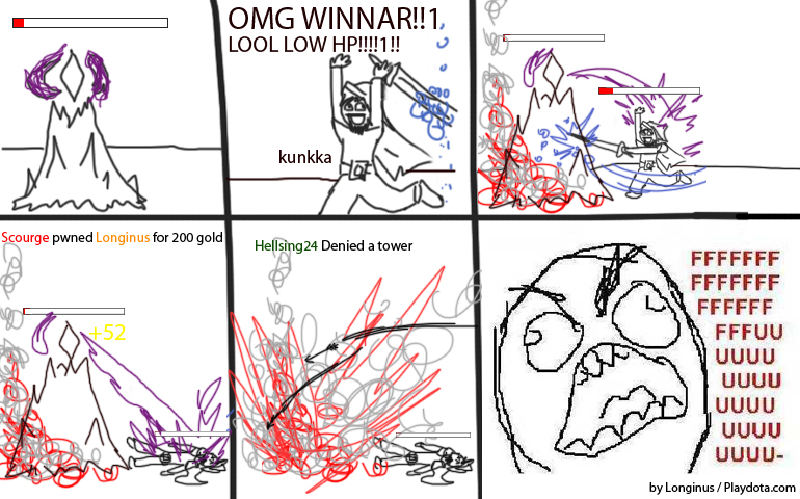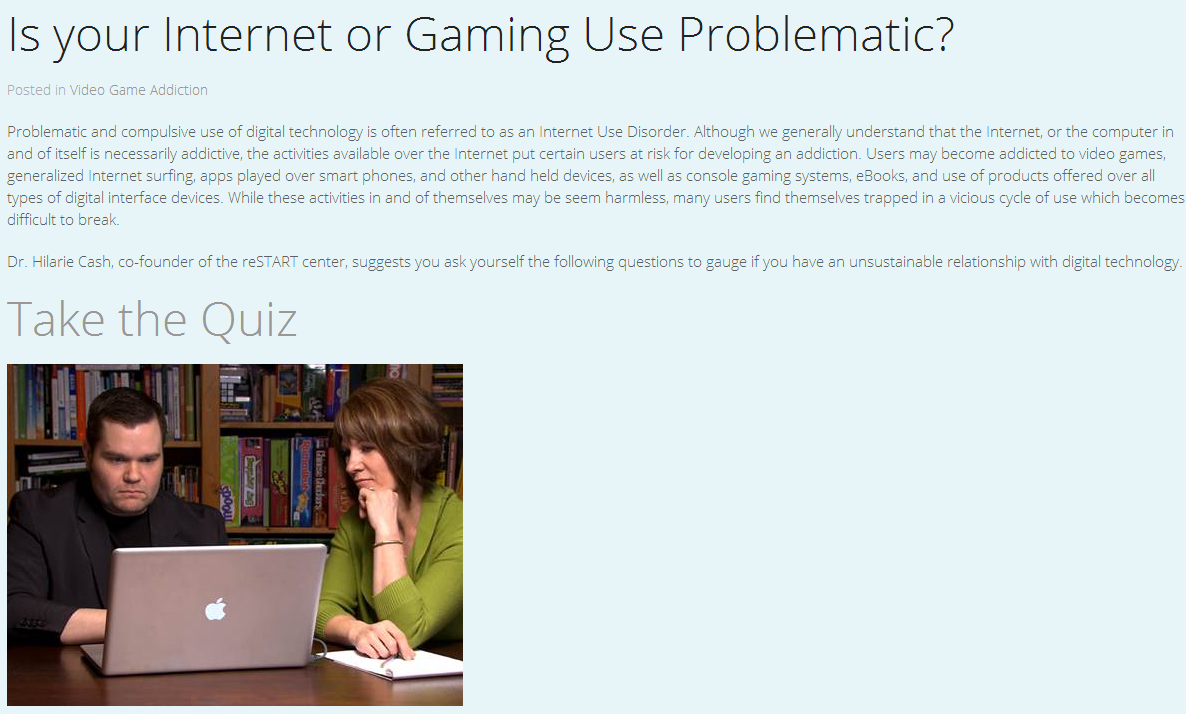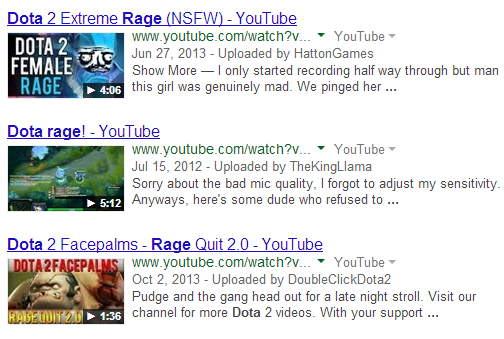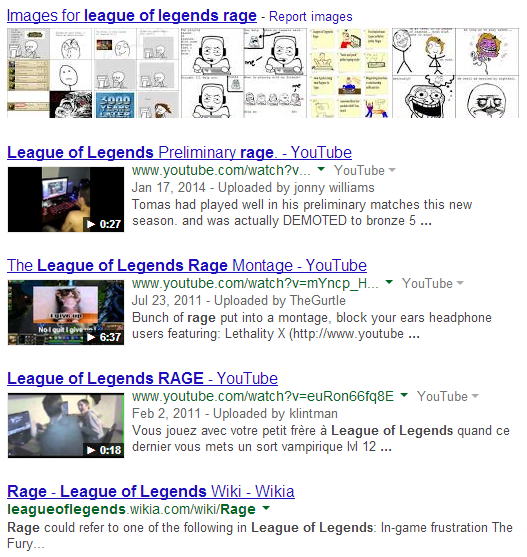This post has not been edited by the GamesBeat staff. Opinions by GamesBeat community writers do not necessarily reflect those of the staff.

Since the dawn of LAN play, MMOs, online feedback, live chat, ventrilo, and headsets, competitive gaming became a transformative role in the entertainment industry. The simple act of decapitating another player, cursing their brains out, and basking in bloodlust was – and still is, a type of ‘high’. It’s fun. It’s exciting. It’s addicting. Call up some friends, grab a good FPS, headsets, some cheap beer, and we’ve got ourselves a solid night.
Some are ashamed to reminisce of long nights filled with verbal battles, rage, and absolute distraught. But I take solace in reflecting on scattered lionshead bottles, eyes gleaming with every glorious headshot, noscope, or quickstab.
As more pubescent players attained headsets, we remedied the problem with the mute button and good music.
In most team deathmatch FPS formats, it’s basically a rush to see who gets the most kills, has better map awareness, or, in rare situations, has some basic application of team strategy. In most scenarios we’re just playing for fun and immediate kill gratification. The ‘community’ only exists for as long as the match. Any type of online community never really incorporates strategic debate; they’re mainly full of general guides, kill cam compilations, fan-created content, renditions, LPs, etc.
What’s interesting though, is the level of volatility in competitive gaming communities seems to align with the time investment and team roles. The rage is relative to commitment.
RTS games like Dota and Starcraft, and the modern manifestations (Dota 2 & League of Legends, Starcraft 2), along with strategic PVP like Arenas in WoW, brought theorycrafting into the mix. There was a noticeable difference in skill. Much like a Wei-Qi/Go player must invest time peeling through layers of depth and memorization, RTS players strive to master a variety of roles and character pools. Strategy threads erupted, builds and skill trees were debated, and “celebrity” players emerged.
Coincidentally, the first ‘official’ video game clinic sprouted in 2006, right around the time the most subscribed/played video games (MMORPG, RTS, and FPS) skyrocketed. Traditional rehabilitation and recovery centers explain the facts and myths about addiction, where gaming addiction parallels are clear. One myth stuck out to me: “Addiction is a moral failing.” If we assume video game addiction is classified on similar grounds, how many millions have failed in this respect? Are they actually failing or are they missing out on opportunities to improve morale?
At any rate, the collective of strategy and time investment required to excel brought new expectations, paradigms, and most importantly, responsibility.
By picking roles/classes we announce our confidence in fulfilling the respective expectations for that role. If you’re a support you’re expected to handle vision, if you’re a carry you’re expected to be a vital threat in the later stages of the game. You’re responsible for meeting those expectations. So what happens when someone fails? Someone declared their confidence, which derives from an unknown amount of hours and dedication to learning their role and level of experience, but then fails to deliver.
The natural response is hate. Not a little disappointment or a smidgen of resentment – pure hate. Blood-boiling, heart-pounding hate.
Those who’ve braved the forums of RTS like Dota or LoL know the hate I’m referring to.
But understanding where the hate comes from and how to handle it seems to be a pivotal moment in not just the competitive gaming realm, but in everyday life. I haven’t played Dota in a few years but I remember being in a game where the outcome was solely decided by the way a teammate demonstrated humbleness and self-deprecating humor. He died three times within a very short time frame, giving the other team a fairly stark advantage. His map awareness was lacking and decision making was off as well. A teammate started bashing him after the 3rd death with comments I’m sure fellow RTS gamers are familiar with. Instead of refuting, back-lashing, or even muting, he responded first with, “You’re right.” After a few seconds he followed up, admitting to poor plays and poking humor at the blindness of his last mishap. He apologized and asserted confidence in making it up. The ‘basher’ on our team, as rare as this may seem, immediately changed sentiments, joining in with humble remarks and adding a little motivational/rallying to get us back on track. We went on to win our team fights and the game.
Statistically, I’m not sure what percent of ‘bashers’ would internalize humbleness. It’s hard to even ball-park because it’s rare that we even see someone who makes repeated mistakes have the courage to be humble about it. The usual reaction is not constructive: raging, feeding, AFKing, etc. I do think a decent amount of players who get upset when a teammate feeds would, in fact, change their sentiments after witnessing this level of humbleness. That’s why I think players can build better personalities by braving the trenches of volatile gaming communities.
As trivial or futile as it may seem to set examples or demonstrate maturity, it’s not that far-fetched to consider these communities a breeding ground or even a catalyst for degrading interpersonal social skills. It’s probably safe to assume a majority demographic falls under 18 and while I do acknowledge some teens are more mature than some adults, their personality has not yet stabilized. PE and NE (positive and negative emotionality) as measurements are murky waters. They’re connected to genetics but as we know, are primarily influenced by parenting, peers, and surroundings. The big question is, “When does personality stabilize?” This answer, as scholarly articles indicate, is unique to everyone. Some suggest by the age of 7 the majority of traits are locked in, while others suggest personality is confirmed by the age of 3 with layers of maturity selectively added on during young adulthood.
For this discussion, we can assume that personality does stabilize at some point, but we have the ability to augment/improve it. The younger we are, the ‘easier’ it should be.
We might conclude that a controlled setting with a ‘moderator’ (such as a school mediator, parent/guardian, teacher) present to explain why particular actions are immature or inappropriate is the ‘best case’ scenario for developing a personality with PE.
But the real world doesn’t have moderators. It has judges – and they’re quick. Dismissing opinions and thoughts that don’t align with your beliefs and eviscerating political or religious stances with a hive-mind attitude are the more dangerous traits we strive to stay away from.
Can volatile gaming communities serve as a training ground for developing commendable personality traits?
The opposition may point out the shared goal is that of total destruction. Honorable deaths are rare. The norm strikes the tune of a blood-soaked warrior’s victory chant. Well, maybe not that extreme…but in our heads, that’s what I imagine. Anyway, when the goal is absolute victory (as opposed to ‘winning’ an argument) some may think it’s unnatural, unfitting, or unreasonable to expect a teen fixated on virtual killing to increase their PE.
I refute: what better setting? Granted, if increasing PE in this environment were slapped with a difficulty label, it would probably be ‘Hard’ or ‘Expert’. But doesn’t that make it relatively more valuable than someone holding their hand? If a teen can learn to control their emotions in high-intensity, infuriating settings, 100% fueled by their own mental will, won’t that be a widely applicable skill to have moving forward in life? This is a subtle, yet powerful experience that undermines the thesis for most anti-violent gaming hype in media and politics.
I know most of this is speculative and subjective, but I think it’s an important topic. Do you think competitive gaming communities give the opportunity to increase our PE and/or build commendable personalty traits?
Quick Intro: Hey GamesBeat readers, my name is Jesse, I’m a gamer, and this is my first ‘unfiltered’ post. Some of my all-time favorite games are Mech Warrior, TMNT (original arcade version), Halo 2, Dota, and Jet Set Radio.





